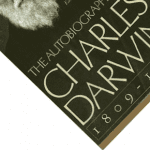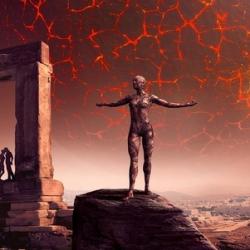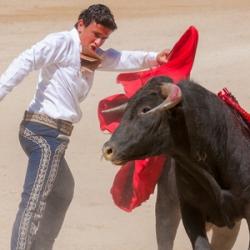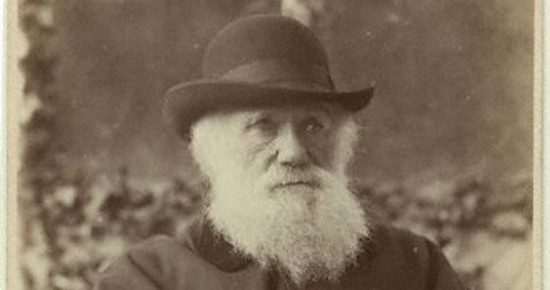
Part 3 in a series on the mangling of Darwin’s Autobiography
I majored in physical anthropology in college — not for the dazzling job prospects, but to fill in my sketchy understanding of evolution.
In addition to changing and deepening my grasp of what it means to be human, a fuller knowledge of evolution led me to wonder how traditional religion could be made to fit with it at all. I also wondered what Darwin thought about that question.
He was seriously religious as a young man, even trained for ministry and annoyed his HMS Beagle shipmates with fundamentalist pronouncements. If after the Galapagos and the Origin and The Descent of Man Darwin was still a conventionally religious man, I knew I must really have missed something. So I picked up Darwin’s Autobiography in my senior year of college to find out.
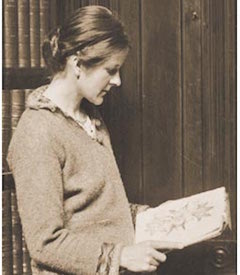
If I’d picked up the 1887 edition by his son Francis, published five years after Charles died and reissued many times since, I’d have been puzzled but chastened. He doesn’t get into religion much at all in that one, and when he does, he mostly affirms his ongoing conventional beliefs. And I would almost certainly never have looked further.
Fortunately it was the 1958 edition by Charles’s granddaughter Nora that found me. As I mentioned in Part 2, Nora restored the bits that the earlier edition had expunged under pressure from Charles’s wife Emma. Nora was able to do this because all of the family members who’d nearly come to blows over what to leave in and what to leave out were now safely demised.
If I had read the first edition, I might have imagined a man with religious convictions essentially intact:
FIRST EDITION (ed. Francis Darwin, 1887)
I liked the thought of being a country clergyman. Accordingly I read with care Pearson on the Creed and a few other books on divinity; and as I did not then in the least doubt the strict and literal truth of every word in the Bible, I soon persuaded myself that our creed must be fully accepted.
Luckily, I happened to pick up the later edition. Compare:
RESTORED EDITION (ed. Nora Barlow, 1958)
I liked the thought of being a country clergyman. Accordingly I read with care Pearson on the Creed and a few other books on divinity; and as I did not then in the least doubt the strict and literal truth of every word in the Bible, I soon persuaded myself that our creed must be fully accepted. It never struck me how illogical it was to say that I believed in what I could not understand and what is in fact unintelligible.
A 12-page section titled “Religious Beliefs” underwent the most vigorous edits. The bracketed text was cut from the first edition:
During these two years I was led to think much about religion. Whilst on board the Beagle I was quite orthodox, and I remember being heartily laughed at by several of the officers (though themselves orthodox) for quoting the Bible as an unanswerable authority on some point of morality. I suppose it was the novelty of the argument that amused them. [But I had gradually come, by this time, to see that the Old Testament from its manifestly false history of the world, with the Tower of Babel, the rainbow at sign, etc., etc., and from its attributing to God the feelings of a revengeful tyrant, was no more to be trusted than the sacred books of the Hindoos, or the beliefs of any barbarian.]
It’s interesting to see what Emma struck out and what she allowed in. She allowed a passage in which he specifically questions divine revelation, but bracketed a portion for deletion that goes after Christianity itself:
I found it more and more difficult, with free scope given to my imagination, to invent evidence which would suffice to convince me. Thus disbelief crept over me at a very slow rate, but was at last complete. The rate was so slow that I felt no distress [and have never since doubted for a single second that my conclusion was correct. I can indeed hardly see how anyone ought to wish Christianity to be true; for if so the plain language of the text seems to show that the men who do not believe, and this would include my Father, Brother and almost all of my friends, will be everlastingly punished. And this is a damnable doctrine.]
Notice that it’s not even his conclusion but the strength of his confidence that apparently unnerved his wife. As for the damnation, she wrote in the margin:
I should dislike the passage in brackets to be published. It seems to me raw. Nothing can be said too severe upon the doctrine of everlasting punishment for disbelief–but very few now wd. call that ‘Christianity,’ (tho’ the words are there).
And 120 years later, the words are still there, and many are still insisting it’s not Christianity. Some books dodge the red pen more easily than others.
Francis oversaw an even more abbreviated 1892 U.S. edition in which the entire 12 pages exploring Charles’s religious beliefs are replaced with a single bracketed fib:
[After speaking of his happy married life, and of his children, he continues:]
So here we have not just a passive omission, but an outright lie about what’s been left out.
Yet if you look hard enough, in all but the God-Bless-America edition, you can indeed find one quiet sentence in which Darwin is permitted to clearly state his theological position. Like Huxley, he rejected belief in the claims and doctrines of Christianity, but said:
The mystery of the beginning of all things is insoluble by us; and I for one must be content to remain an Agnostic.
The distortion of Darwin’s religious views continued for years. One of the most galling attempts was by Lady Elizabeth Hope, an evangelist who published a fabricated story in 1915 claiming to have heard Darwin renounce evolution and embrace Jesus on his deathbed. Francis redeemed his editorial self brilliantly. “Lady Hope’s account of my father’s views on religion is quite untrue. I have publicly accused her of falsehood, but have not seen any reply. My father’s agnostic point of view is given in my Life and Letters of Charles Darwin, Vol. I., pp. 304–317,” he wrote to a publisher in 1918.
“I was present at his deathbed,” said Charles’s daughter Etty. “Lady Hope was not present during his last illness, or any illness. I believe he never even saw her, but in any case she had no influence over him in any department of thought or belief. He never recanted any of his scientific views, either then or earlier. We think the story of his conversion was fabricated in the U.S.A. …The whole story has no foundation what-so-ever.”
Etty’s niece Nora eventually put the pieces back together, but the genie never goes all the way back in. As of today, 6 of the 10 bestselling versions of Darwin’s Autobiography on Amazon are the Francis Darwin edition.
Thank you for trying, Nora.
DALE McGOWAN is the author of Atheism for Dummies and Raising Freethinkers. He lives in Atlanta.

